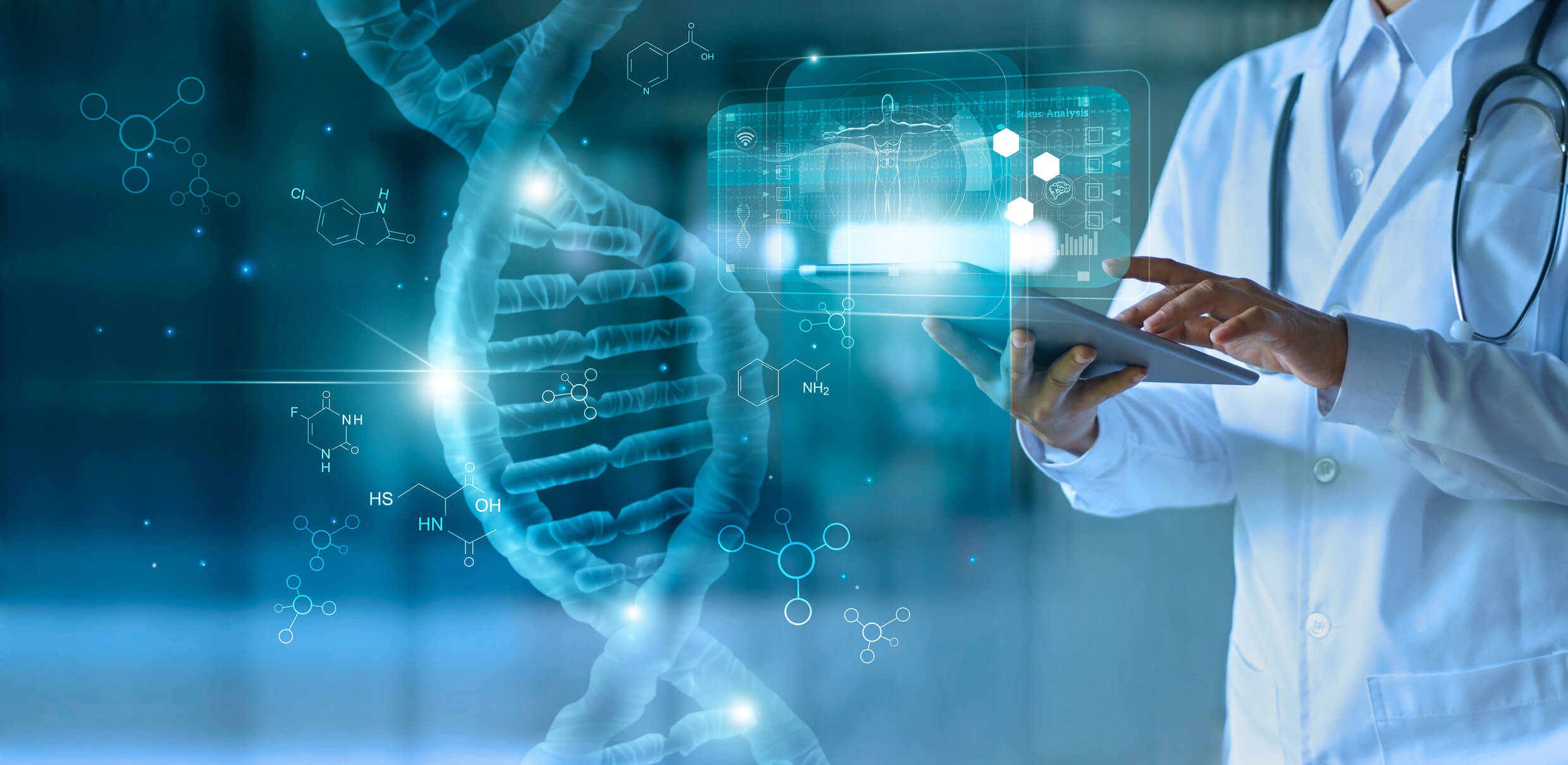Metabolomics and proteomics
Overall Course Objectives
To give the students an overview of the main types of small organic molecules and proteins that living organisms such as microorganisms and plants can biosynthesize, and how they can be extracted and prepared for chemical analysis. The major objective of the course is to give the students a solid understanding of chromatographic based analytical methods with special emphasis on analysis and detection of both known and unknown compounds by interpretation of mass spectrometric data. The course aims broadly at students studying biotechnology, organic chemistry and pharmatechnology, who want to strengthen their analytical chemical knowledge.
Learning Objectives
- Describe the general principles of sample preparation of small organic molecules and proteins, e.g. using solid phase extraction (SPE).
- Explain the general principle of chromatography (LC, GC) including the use of different relevant types of columns.
- Explain the general principles of diode array detection (DAD) and mass spectrometry (e.g. QTOF) coupled to liquid chromatography (LC-DAD-MS).
- Demonstrate the principles of dereplication and accurate mass spectrometry.
- Perform data analysis using standard instrumental software for LC-DAD-MS analysis.
- Compare analytical results to information in commercial databases.
- Explain the basic principles behind quantitative analysis of small organic molecules.
- Explain the principles behind mass spectrometry based (e.g. Orbitrap and MALDI TOF) analysis of proteins.
- Describe common methodology in proteomics workflows.
- Understand the various ways of conducting quantitative proteomics, e.g label-free vs. labeled.
- Gain insight into MS-based proteomics data processing.
Course Content
Industrial production of small organic biomolecules (metabolites or natural products) as well as proteins using microbial cell factories is estimated to increase dramatically in the coming years. This includes important products such as antibiotics, anticancer agents, smaller proteins, and food ingredients like aroma compounds, pigments, antioxidants and vitamins. Other metabolites are toxic to humans and are therefore to be avoided in food and feed. This course will teach the basic principles behind modern methods for analysis of small organic molecules, as well as proteins, especially based on liquid chromatography coupled to mass spectrometry. The topics will be presented in a mixture of lectures, exercises, group work and presentations.
Teaching Method
Lectures, exercises, literature search, group work and student presentations
Faculty
Limited number of seats
Minimum: 10.
Please be aware that this course will only be held if the required minimum number of participants is met. You will be informed 8 days before the start of the course, whether the course will be held.





